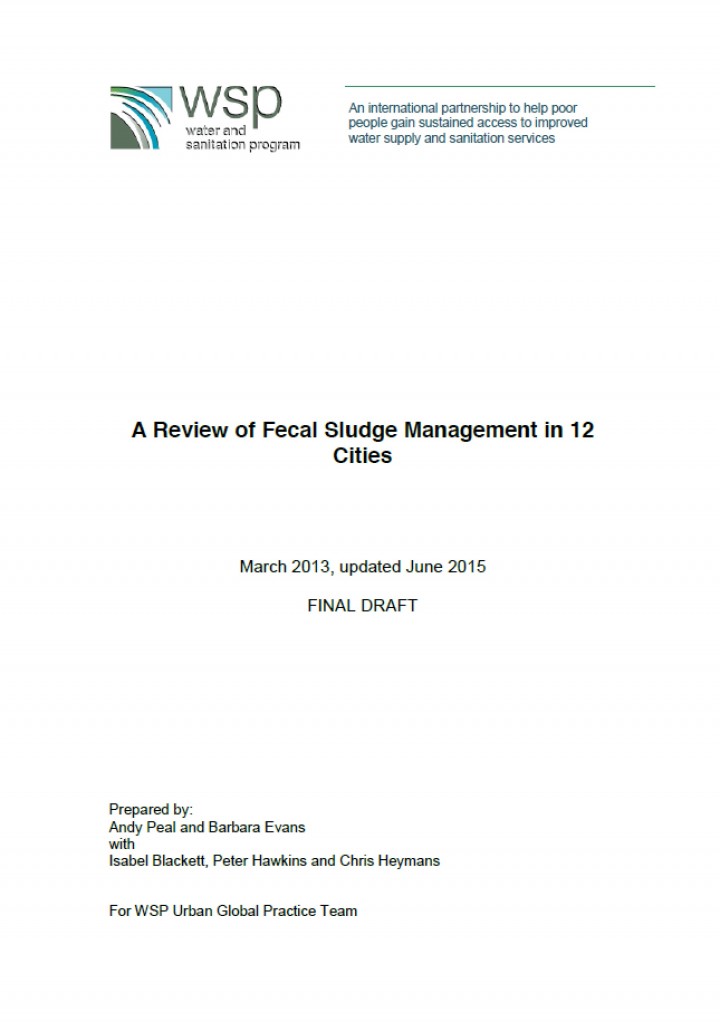A Review of Fecal Sludge Management in 12 Cities - (Final Draft)
Peal, A., Evans, B., Blackett, I., Hawkins, P., Heymans, C. (2015)

Published in: 2015
Pages: 105
Publisher:
World Bank - Water and Sanitation Program
Author:
Peal, A., Evans, B., Blackett, I., Hawkins, P., Heymans, C.
Uploaded by:
SuSanA Admin
Partner profile:
common upload
11876 Views
817 Downloads
Location of library entry
Content - Summary
The World Bank - Water and Sanitation Program commissioned this study to examine global trends in FSM using 12 city case studies as a basis. The objective was to start developing an analysis that can be used to assess FSM at the city level and identify appropriate operational interventions. This desk-based study was a rapid assessment based on secondary data sources supplemented with interviews with key informants. The report is comprised of five sections and annexures:
Section 1 introduces the report and provides the background as to why fecal sludge management is important.
Section 2 describes the study tools and methods used.
Section 3 looks at the results or key findings of the research.
Section 4 includes a discussion of how the findings can be used at the operational level to inform policy and recommendations on how to address critical knowledge gaps.
Finally, section 5 presents the conclusions drawn from the research.
Annexure 1 includes short case studies on each of the 12 cities and a matrix of the data used to develop the SDF: Santa Cruz, Bolívia; Tegucigalpa, Honduras; Managua, Nicaragua; Maputo, Moçambique; Dakar, Senegal; Kampala, Uganda; Dhaka, Bangladesh; Delhi, India; Phonm Penh, Cambodia; Palu, Indonesia; Dumaguete and Manila, Philippines.
Bibliographic information
Peal, A., Evans, B., Blackett, I., Hawkins, P., Heymans, C. (2015). A Review of Fecal Sludge Management in 12 Cities - (Final Draft). World Bank - Water and Sanitation Program
Filter tags
East Asia & Pacific English Faecal sludge treatment processes Latin America & Caribbean Operation, maintenance and sustainable services (WG10) Peri-urban Sub-Saharan Africa Urban (entire city) Urban informal settlements (slums)















